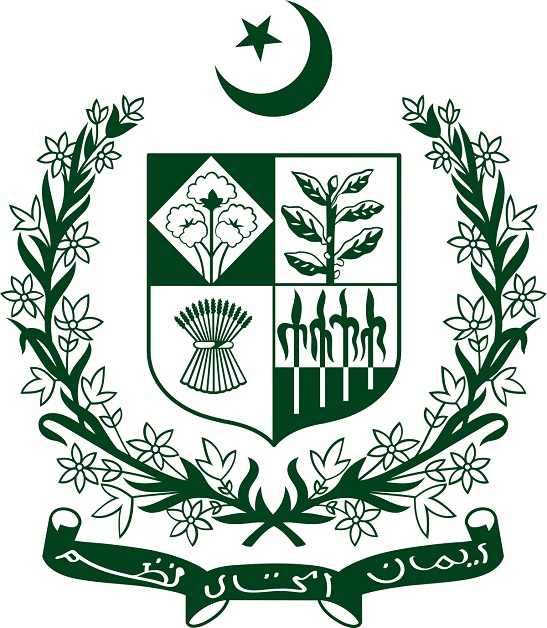
After much deliberation, the government has come out with Auto Industry Development and Export Policy (AIDEP) 2021-2026, a roadmap for Pakistan’s auto industry for the next five years.
It is worth reminding our readers that AIDEP 2021-26 is the heir to the Automotive Development Policy 2016-21, which is largely credited for bringing in new auto manufacturers in the country. However, where ADP 2016-21 was foreign investment centric, its heir is manufacturing and export focused.
AIDEP 2021-26: Salient Features
This latest unveiled policy aims to:
- Provide reasonably priced affordable cars, bikes, and tractors, etc
- Export left-hand, Pakistan-made vehicles
- Promote electric (EV) and hybrid vehicles
- Improve localisation, and
- Ensure consumers’ protection
The policy aims to achieve these goals by providing tax and duty relief to existing and future auto manufacturers.
Meri Garri Scheme
As mentioned above, the government in the next five years aims to provide affordable vehicles to a large swath of the people. This is especially true for vehicles up to 1,000cc, including cars, vans and light commercial vehicles (LCVs).
To make this happen, the government has completely eliminated:
- Federal Excise Duty (FED)
- Withholding tax
- Additional sales tax
- Additional customs duty
In addition, sales tax has been reduced to 12.5%.
Think → Suzuki Alto, Wagon R, Cultus, Bolan and Ravi, etc.
Vehicles between 1,000cc and 2,000cc
To bring down the prices in this category, including prices of cars, SUVs and LCVs, the Federal Excise Duty (FED) will be slashed by 2.5%.
Think → Honda City, Civic, Toyota Corolla, Kia Sportage, Hyundai Tucson, MG HS, etc.
Agri sector, two-wheel and three-wheel vehicles
AIDEP 2021-26 is not meant to provide relief to the urban masses only; it aims to drive down prices of tractors, motorcycles, auto-rickshaws, and motorcycle rickshaws as well.
To this end, the government aims to slash customs duty on the localized parts which would be fixed at 15% for the next three years.
For the two-wheelers exceeding 125cc and three wheelers exceeding 200cc, the customs duty on the localized parts would be fixed at 30% for the next three years.
EVs and Hybrids
Sales tax on the locally manufactured electric vehicles (EVs) has been fixed at 1%, previously it was 17%. In addition, customs duty on the import of EVs has been reduced to 10%, previously it was 25%.
For the locally manufactured vehicles using hybrid technology, the sales tax has been reduced to 8.5%.
For the import of hybrid vehicles, the regulatory duty has been reduced to zero for vehicles 1800cc and below and at 15% for vehicles above 1800cc.
Penalties for charging “On-Money” and late delivery of vehicles
To end the curse of “on-money” or “own-money” the government has decided to impose taxes of Rs.50,000 to Rs.200,000 (depending on the vehicle’s engine power) at the time of registration.
Also, if the car is delayed for delivery beyond 60 days, the manufacturer will have to financially compensate the buyer.
Auto Parts
Customs duty has been slashed on the import of auto parts as well. Previously, the customs duty on the import of non-localised parts was 30%, now it will be 15%. Similarly, the customs duty on the import of localized parts was 46% and now it will be 30%.
Noticeable Differences Between ADP 2016-21 and AIDEP 2021-26
ADP 2016-21 was primarily focused on bringing in foreign investment in the local automobile manufacturing sector. One example of its successful execution can be seen in the form of the “SUV Revolution” in the country.
International automobile manufacturers were provided with a lot of incentives like greenfield and brownfield investment incentives, allowance of importing a certain number of CBUs for testing and marketing purposes, tax reduction and other financial incentives, etc.
The presently adopted AIDEP 2021-26 aims to expand on what its predecessor has achieved. It is focused on localisation – parts, complete units, etc. It also aims to promote the so-called new technologies like hybrid and EVs, etc. The focus is also on quantity – manufacturing vehicles in larger numbers and providing them to the people at affordable prices.
Is AIDEP 2021-26 asking for the Moon?
While the policy has only recently been adopted, therefore it remains to be seen if its implemented in letter and spirit. However, its goal of providing automobiles at affordable prices is commendable though lofty.
Similarly, manufacturing of EVs seems a bit far fetched without first investing heavily in the infrastructure required for its manufacturing. Another seemingly unattainable goal is the export of locally manufactured vehicles. Currently, Pakistan does not export vehicles and to become an automobile exporter in the next five years seems a bit far fetched. Maybe this is why the government has decided that this goal will be reviewed periodically.
Bottom line: Will the Prices Come Down?
It seems the government is completely relying upon slashing taxes and duties to bring down prices. Will this approach work this time?
Historically, prices always go up as the taxes and duties go up; however, they do not necessarily go down when these taxes and duties are slashed.
It has happened before that the government has cut down on duties in the hope of cutting down prices and yet the prices have always gone up. This has been largely due to the fact that the rupee has depreciated against the US dollar. To offset this, the government has emphasized on localisation in this policy. Therefore, it is yet to be seen whether these efforts will actually drive the prices down.
What do you make of this new auto policy? Do you think Pakistan will export cars and locally manufacture EVs in the next five years? Do you have any suggestions and recommendations for the government?








I wish this policy to be successful. But unfortunately it is impossible that prices of vehicles go down, because the functionaries responsible for execution of policy, are not interested in decreasing prices. Instead they increase their share of commission from manufacturing sector and allow them to rob the people.
Not sure who is making these polices. I think they have no Brains and are just incompetent in what they are asked to do.
EV is the most difficult one to run even in West with infra structure that exist now. There is shortage of electricity in Pakistan hence this is not going to be atleast in the next 10 years.
Pakistani are very hard working nation and I think they can export cars made in Pakistan if given right direction which is lacking for the last 70 odd years
Prices of the cars will not come down as the govt does not want this. They receive kickbacks and help actually to increase the prices. Rupee depreciation is a fact but have you ever seen prices coming down. Not in my life yet even when rupee was stronger.
In conclusion. Time will tell and prepare for the worse to come.
wrong facts and figures, who said there is electricity shortage in the country, in fact government is paying billions in capacity payments and capacity payments will be doubled in next five years , the only way to cover this loss is to promote EV.
It is hard to believe that we will be able to
to export cars.very serious efforts are required
to make it possible.we should for the best.
Government is adopting the same policy that they adopted with sugar mafia for years.
Unfortunately so far, localization is done on non-technological parts and it will continue the same way.
None of the company tried or even thought of bringing technology to the country. Still government is relying on same companies.
Every policy of this government is going to fail unless they make laws and enforce them to the auto-manufecturers to bring technology.
Icing on the cake is that all the upcoming auto manufecturers are bringing their scrap machinery to our country and earning premiums by selling outdated technologies and discontinued models.
All these policies seem really far-fetched. Its not like we, as a nation , are not in favour or are not encouraging these policies but the fact is that Pakistan is an under-developed nation and implementing something as huge as the new AIDEP 2021- 26 policy seems really unfeasible. Majorly, the theory the government officials have proposed seems too rididculous to be true. Prices can never be decreased by slashing taxes and duties. It has been seen time and time again that prices have only ever escalated. Besides in a country that is corrupted from top to bottom, it is really difficult to determine where the automobile budget will end up in the end. Most probably in pockets that have always hindered the success of Pakistan.